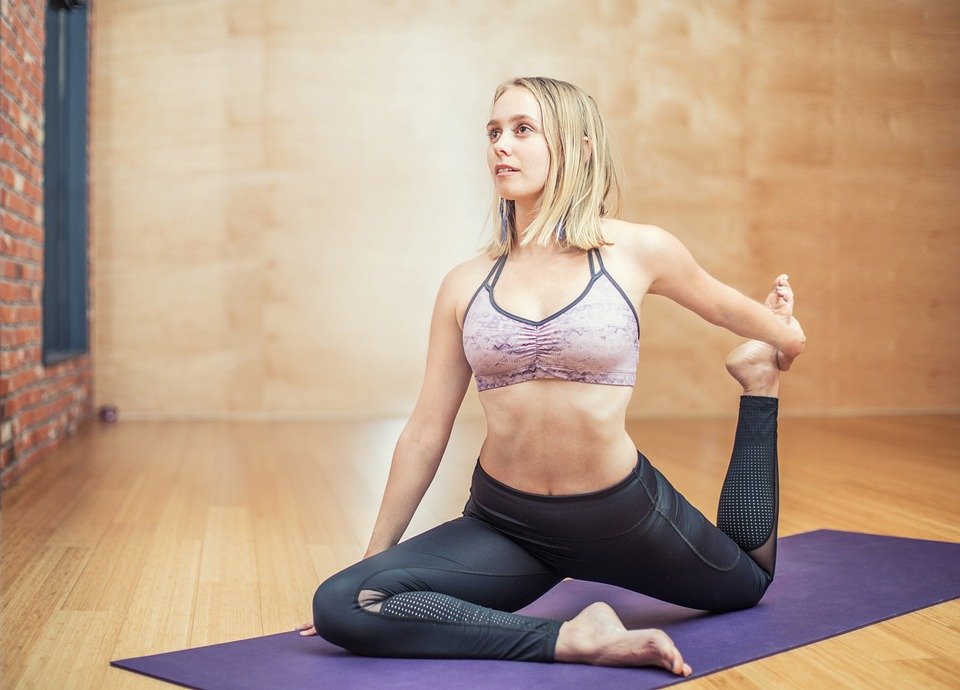Yoga for Mental Health: Managing Anxiety and Depression
In this fast-paced world, mental health issues such as anxiety and depression have become increasingly prevalent. Many individuals are searching for holistic approaches to manage their symptoms and improve their overall well-being. Yoga, an ancient practice that combines physical postures, breathing exercises, and meditation, has gained significant recognition for its ability to benefit mental health. In this article, we will explore the benefits of yoga for managing anxiety and depression, as well as address frequently asked questions about incorporating yoga into your mental health routine.
Benefits of Yoga for Mental Health
1. Reduces Stress: Yoga promotes relaxation and helps to reduce the stress response in the body. Through deep breathing and mindful movement, it activates the parasympathetic nervous system, also known as the “rest and digest” mode, which counteracts the effects of stress hormones.
2. Improves Mood: Engaging in yoga releases endorphins, the feel-good hormones that boost mood and increase overall happiness. The combination of physical activity, breathing exercises, and meditation helps to regulate emotions and create a sense of calm.
3. Enhances Mindfulness: Yoga encourages awareness of the present moment, allowing individuals to observe their thoughts and emotions without judgment. This practice of mindfulness can help break negative thought patterns associated with anxiety and depression.
4. Increases Self-Compassion: Yoga promotes self-acceptance and self-compassion. Through regular practice, individuals learn to cultivate kindness towards themselves, which can be particularly beneficial for those struggling with low self-esteem and depressive symptoms.
5. Boosts Cognitive Functioning: Yoga has been shown to improve cognitive abilities such as attention span, memory, and concentration. These benefits can be particularly useful for individuals experiencing brain fog or difficulty focusing due to anxiety or depression.
Incorporating Yoga into Your Mental Health Routine
1. Start Slowly: If you are new to yoga, begin with gentle and beginner-friendly classes or online tutorials. Allow yourself to gradually build strength and flexibility, honoring your body’s needs and limitations.
2. Find a Style that Suits You: There are various styles of yoga, such as Hatha, Vinyasa, and Yin. Experiment with different styles to find the one that resonates with you and your goals. Some styles may emphasize relaxation and grounding, while others may focus on strength and flexibility.
3. Set Realistic Goals: Establish realistic goals for your yoga practice. It is not about achieving perfection but rather about finding balance and self-care. Consistency is key, so aim for regular practice rather than pushing yourself to the limits in a single session.
4. Combine Yoga with Other Therapies: Yoga can be a powerful complement to traditional therapies such as counseling or medication. Consult with your mental health professional to create an integrated treatment plan that includes yoga alongside other forms of support.
FAQs
Q: Can yoga alone cure anxiety or depression?
A: While yoga offers numerous benefits for mental health, it is important to remember that it is not a standalone treatment for anxiety or depression. It is best used as part of a comprehensive approach that includes therapy, medication if necessary, and other self-care practices.
Q: Can anyone practice yoga, regardless of age or physical ability?
A: Yes, yoga is a versatile practice that can be modified to suit individual needs. There are chair yoga classes available for those with limited mobility, and modifications can be made to accommodate different skill levels.
Q: How long does it take to experience the benefits of yoga for mental health?
A: The effects of yoga on mental health may vary from person to person. Some individuals may experience immediate relief, while others may notice gradual changes over time. Consistency and regular practice are key to reaping the maximum benefits.
Q: Can yoga worsen anxiety or depression symptoms?
A: It is unlikely that yoga will worsen symptoms. However, it is essential to listen to your body and modify or avoid postures that feel uncomfortable or triggering. If you have concerns, consult with a qualified yoga instructor or mental health professional.
In conclusion, yoga can be a valuable tool in managing anxiety and depression. By incorporating yoga into your mental health routine, you can experience the numerous benefits it offers, including stress reduction, mood enhancement, increased mindfulness, self-compassion, and improved cognitive functioning. Remember to start slowly, find a style that suits you, set realistic goals, and consider combining yoga with other therapies. With time and dedication, yoga can become a powerful ally in your journey towards improved mental well-being.


